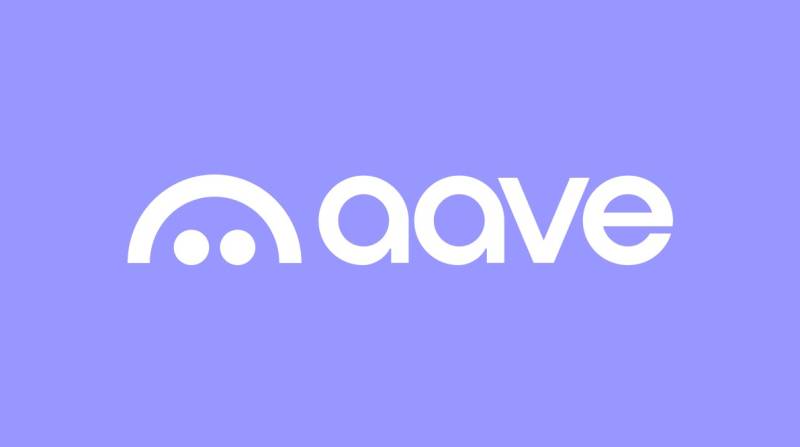 |
|
 |
|
 |
|
 |
|
 |
|
 |
|
 |
|
 |
|
 |
|
 |
|
 |
|
 |
|
 |
|
 |
|
 |
|
この論争は、デジタル資産に関する公的な物語を形成する政府機関の役割に多くの疑問があるため、暗号通貨コミュニティおよびそれ以降で広範な議論を輝かせました。
Cardano founder Charles Hoskinson has strongly criticized the United States Agency for International Development (USAID) for allegedly financing a book that portrays Bitcoin as being linked to right-wing extremism. The controversy has ignited widespread debate in the cryptocurrency community and beyond, as many question the role of government agencies in shaping public narratives about digital assets.
カルダノの創設者であるチャールズ・ホスキンソンは、ビットコインが右翼の過激主義に関連していると描写している本に資金を提供したとされる米国国際開発機関(USAID)を強く批判しています。この論争は、デジタル資産に関する公的な物語を形成する政府機関の役割に多くの疑問があるため、暗号通貨コミュニティおよびそれ以降で広範な議論を輝かせました。
Hoskinson took to social media to express his frustration over the issue. On X (formerly known as Twitter), he wrote, “So apparently, USAID is funding the production of propaganda that says Bitcoin is right-wing extremism. I’m so done with this garbage.” His remarks highlight his deep concerns regarding how Bitcoin and blockchain technology are being framed in public discourse, particularly by government-backed initiatives.
ホスキンソンは、ソーシャルメディアを利用して、この問題に対する不満を表明しました。 X(以前はTwitterとして知られています)で、彼は次のように書いています。私はこのゴミをとても終わらせています。」彼の発言は、特に政府が支援するイニシアチブによって、ビットコインとブロックチェーンテクノロジーがどのように公の言説に囲まれているかについての彼の深い懸念を強調しています。
The book at the center of this controversy is titled “Cyberlibertarianism: The Right-Wing Politics of Digital Technology,” authored by David Golumbia. The book argues that Bitcoin and similar digital technologies have ideological connections to right-wing extremism and cyberlibertarianism, suggesting that these innovations are being used to undermine state control and traditional financial institutions.
この論争の中心にある本のタイトルは、「サイバーリバータリアン主義:デジタルテクノロジーの右翼政治」、デイビッド・ゴルンビアが執筆しています。この本は、ビットコインと同様のデジタル技術が右翼の過激主義とサイバーリバータリアン主義とイデオロギー的なつながりを持っていると主張しており、これらの革新が国家管理と伝統的な金融機関を損なうために使用されていることを示唆しています。
Golumbia, an academic and critic of decentralized technologies, has also written another book titled “The Politics of Bitcoin: Software as Right-Wing Extremism,” in which he presents a similar argument. These works have been adopted into university curricula, including those at institutions such as Duke University and the University of Southern California.
分散化された技術の学者であり批評家であるゴルビアは、「ビットコインの政治:右翼の過激主義としてのソフトウェア」というタイトルの別の本を書いています。これらの作品は、デューク大学や南カリフォルニア大学などの機関に含まれる大学のカリキュラムに採用されています。
Reports indicate that Golumbia received approximately $80,000 in government grants, allegedly from USAID, to support his research and publication. This revelation has triggered concerns about the motivations behind funding such work and the potential for government agencies to influence narratives about cryptocurrency in an unfavorable manner.
報告によると、ゴルビアは、彼の研究と出版を支援するために、USAIDからの政府の助成金で約80,000ドルを受け取ったことが示されています。この啓示は、そのような仕事への資金提供の背後にある動機と、政府機関が不利な方法で暗号通貨に関する物語に影響を与える可能性についての懸念を引き起こしました。
Hoskinson’s criticism reflects broader sentiments within the cryptocurrency industry, where many believe that Bitcoin and blockchain technology are politically neutral tools designed for financial inclusion and decentralization. Critics argue that labeling Bitcoin as an instrument of right-wing extremism is misleading and ignores the diverse range of individuals and organizations that use it.
ホスキンソンの批判は、暗号通貨業界内のより広範な感情を反映しています。そこでは、ビットコインとブロックチェーン技術は金融包摂と分散化のために設計された政治的に中立なツールであると多くの人が信じています。批評家は、ビットコインを右翼の過激主義の道具としてラベル付けすることは誤解を招くと主張し、それを使用する多様な個人や組織の範囲を無視していると主張しています。
Bitcoin has been adopted by people across various political and ideological backgrounds, from activists in authoritarian regimes to financial institutions looking for alternative assets. To many in the crypto space, the suggestion that Bitcoin has inherent political biases contradicts its fundamental principles of decentralization and permissionless access.
ビットコインは、権威主義体制の活動家から、代替資産を探している金融機関まで、さまざまな政治的およびイデオロギー的背景の人々によって採用されています。暗号分野の多くの人にとって、ビットコインが固有の政治的偏見を持っているという提案は、分散化と許可のないアクセスの基本原則と矛盾しています。
This incident raises critical questions about the role of government agencies like USAID in funding research that could carry ideological biases. While USAID is primarily known for its work in international development and humanitarian aid, allegations that it is financing research projects that portray Bitcoin in a negative light suggest a potential overreach into political and economic discourse.
この事件は、イデオロギーの偏見をもたらす可能性のある資金調達研究において、USAIDのような政府機関の役割について重要な疑問を提起します。 USAIDは主に国際開発と人道支援における仕事で知られていますが、ビットコインを否定的な観点から描写する研究プロジェクトの資金調達であるという主張は、政治的および経済的言説への潜在的な行き過ぎを示唆しています。
The broader concern is whether government-funded research is being used to shape public perception about digital assets in a way that serves particular political or economic interests. Some experts argue that this kind of funding could be an attempt to discredit cryptocurrencies, which pose a challenge to traditional financial systems and state-controlled monetary policies.
より広い懸念は、特定の政治的または経済的利益に役立つ方法で、デジタル資産に関する国民の認識を形成するために政府が資金提供する研究が使用されているかどうかです。一部の専門家は、この種の資金は暗号通貨を信用しない試みである可能性があると主張しており、これは従来の金融システムと州管理された金融政策に課題をもたらします。
As Bitcoin and blockchain technology continue to gain mainstream adoption, discussions surrounding their role in society will likely become even more polarized. Governments, regulatory bodies, and institutions may continue to attempt to influence public opinion through research and policy measures.
ビットコインとブロックチェーンテクノロジーが主流の採用を続けているため、社会における彼らの役割を取り巻く議論はさらに偏見が生じる可能性があります。政府、規制機関、および制度は、研究と政策措置を通じて世論に影響を与えようとし続ける可能性があります。
The controversy surrounding USAID’s alleged funding of Golumbia’s book underscores the growing tension between decentralized financial technologies and traditional power structures. While Bitcoin advocates emphasize the technology’s potential for financial empowerment and censorship resistance, critics argue that it could be exploited for illicit activities or used to challenge state authority.
Golumbiaの本に対するUSAIDの申し立てられた資金をめぐる論争は、分散化された金融技術と伝統的な電力構造との間の緊張の高まりを強調しています。ビットコインの支持者は、財政的エンパワーメントと検閲抵抗の技術の可能性を強調しているが、批評家は、それが違法な活動に搾取されたり、国家権限に挑戦するために使用される可能性があると主張している。
免責事項:info@kdj.com
The information provided is not trading advice. kdj.com does not assume any responsibility for any investments made based on the information provided in this article. Cryptocurrencies are highly volatile and it is highly recommended that you invest with caution after thorough research!
If you believe that the content used on this website infringes your copyright, please contact us immediately (info@kdj.com) and we will delete it promptly.
-

-

-

-

-

- Ethereum(Eth)は死んでいますか?市場の力、技術的抵抗、投資家の感情をナビゲートします
- 2025-02-12 21:31:11
- Ethereum(ETH)は、今月初めに3,000ドルの重要な心理レベルを下回った後、勢いを取り戻すのに苦労しており、かなりのボラティリティに直面しています。ビットコインが回復力を示しているため、より広範な暗号市場は回復を経験していますが、イーサリアムは2,700ドルのマーク未満で引き続きホバリングし続けています。投資家の心に関する大きな問題は、イーサリアムが主要なカムバックの瀬戸際にあるのか、それともさらなる減少が避けられないのかということです。この記事では、Ethereumの現在のステータス、主要な市場指標、および潜在的な将来のシナリオを調べます。
-

-

-

-






























































